2017 Cancer Immunotherapy Symposium
The 2017 Cancer Immunotherapy Symposium was held on Thursday, April 20, 2017.
Please enjoy the featured talks below. Thank you!
Please note: These videos are for private viewing only. Any unintended use of the videos without consent is prohibited.

Ida Deichaite, PhD
UC San Diego Moores Cancer Center

Ted Ball, MD
UC San Diego Moores Cancer Center

Dan Kaufman, MD, PhD
UC San Diego Moores Cancer Center
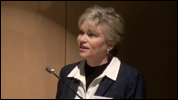
Terri McClanahan, PhD
Merck Research Labs
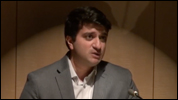
Sandip Patel, MD
UC San Diego Moores Cancer Center

Catherine Sanders, MT, PhD
Adaptive Biotechnologies

Judy Varner, PhD
UC San Diego Moores Cancer Center

Allison Welsh, PhD
Foundation Medicine Inc.

Megan Kaneda, PhD
UC San Diego Moores Cancer Center
Keynote Speaker
Genetically Modified T-Cell Therapies for Cancer
Hyam Levitsky, MD
Juno Therapeutics
[+] Biography
|
|
Hyam (“Hy”) Levitsky is Executive Vice President, Chief Scientific Officer for Juno Therapeutics. Prior to joining Juno in May 2015, Dr. Levitsky held the position of Head of Cancer Immunology Experimental Medicine at Roche Pharma Research and Development in Basel, Switzerland. Prior to that, Levitsky served as a Professor of Oncology, Medicine and Urology at The Johns Hopkins University School of Medicine, and was also an active staff member in Oncology and Medicine at The Johns Hopkins Hospital. Dr. Levitsky received a B.S. from the University of Pennsylvania School of Engineering and Applied Science and an M.D. from The Johns Hopkins School of Medicine and did his internship and residency in internal medicine on the Osler Medical Service at Johns Hopkins Hospital, rising to become Assistant Chief of Service. He trained in Medical Oncology as a Senior Clinical Fellow at Johns Hopkins Oncology Center, became Assistant Professor of Oncology in 1991, rising to full Professor in 2001, and taught in the School of Medicine until 2011. His areas of expertise include Oncology, Immunology, Hematologic Malignances / Bone Marrow Transplantation (serving as Scientific Director of the George Santos Bone Marrow Transplant Program), Cellular and Molecular Medicine, and Pathobiology. Dr. Levitsky is also a founding Executive Committee member of the Cancer Immunotherapy Consortium of the Cancer Research Institute. He was a Stohlman Scholar of the Leukemia and Lymphoma Society of America (LLS) and a member of the American Society for Clinical Investigation (ASCI). He is also an active member of the American Association of Cancer Research, the American Society of Hematology, and is one of a select group of immunologists serving on review panels for both the LLS SCOR program and the Cancer Prevention and Research Institute of Texas. He was a founding member of MIATA (Minimal Information About T cell Assays), advises the FDA on cancer immunotherapy issues and serves on the External Scientific Advisory Board of the Pasteur Institute’s Center for Human Immunology, has consulted on a number of industry scientific advisory boards and contributes and provides editorial support to several prestigious cancer, immunology, scientific and medical publications. Dr. Levitsky holds several patents.
|
Indoleamine 2,3-dioxygenase pathway and checkpoint inhibition
Shilpa Alekar, MD
Pfizer
[+] Biography
|
|
Dr. Shilpa Alekar received her M.D. in trauma and critical care medicine at Byramjee Jeejeebhoy Medical College, India where she focused on clinical practice. Since joining the pharmaceutical industry, she has held key leadership roles with increasing responsibilities in Oncology drug development working on novel immunotherapeutic agents such as BiTEs (bispecific T-cell engagers) blinatumomab in R/R ALL at Amgen, checkpoint inhibitors (PD-1, PD-L1) pembrolizumab in R/M HNSCC at Merck. Currently, Dr. Alekar works as Clinical Lead in Oncology Early Development at Pfizer leading immuno-oncology assets such as IDO1inhibitor, VBIR (vaccine based immunotherapeutic regimen) and Pidilizumab.
Her research is focused on predictive biomarkers for immunotherapeutic response.
|
CTLA-4 Blockade as Treatment for Relapse after Allogeneic Stem Cell Transplantation
Ted Ball, MD
UC San Diego Moores Cancer Center
[+] Biography
|
|
Dr. Edward (Ted) D. Ball received his M.D. from the Case Western Reserve University School (CWRU) of Medicine in 1976. After completing his internal medicine residency he trained in Hematology/Oncology at CWRU and Dartmouth Medical School. During his fellowship training, Dr. Ball became interested in the emerging field of monoclonal antibody production for diagnostics and therapeutics. After joining the Dartmouth faculty, he developed several candidate therapeutic antibodies and applied them to another emerging therapy, autologous bone marrow transplant (BMT). He developed several clinical trials testing the idea that occult leukemia cells could be “purged” from the bone marrow in vitro, thus allowing transplantation of bone marrow back into a patient following myeloablative chemotherapy. He also explored the concept of direct intravenous administration of both monospecific and bispecific antibodies in experimental clinical trials for AML patients.
Dr. Ball left Dartmouth in 1991 to become Professor of Medicine and the Chief of the Hematology and Bone Marrow Transplant division at the University of Pittsburgh Medical Center. He then was recruited to UCSD to head the BMT Division in 1998. He continued his work with therapeutic monoclonal antibodies including the development of a clinical trial focusing on the problem of relapse of malignant disease after allogeneic stem cell transplant using a novel checkpoint inhibitor, ipilimumab (now FDA-approved for treatment of malignant melanoma). This first clinical trial of a checkpoint inhibitor in the setting of allogeneic transplant was successful in showing that the antibody was safe and led to remissions in a subset of patients. Based on this, a larger multi-center clinical trial was initiated. The initial results of this trial were recently published in the New England Journal of Medicine (375(2):143-53, 2016).
Dr. Ball has published over 250 journal articles and book chapters in the fields of monoclonal antibody development, stem cell transplantation and leukemia biology. He has been an officer in several professional societies and a Scholar of the Leukemia & Lymphoma Society.
|
CIRM Funding Opportunities in the IO Space
Ingrid Caras, PhD &
Sohel Talib, PhD
California Institute for Regenerative Medicine
[+] Biographies
|
|
Sohel Talib, Ph.D., is Associate Director, Stem Cell Gene Therapy at California Institute for Regenerative Medicine (CIRM). He is responsible for developing and implementing CIRM’s scientific programs and managing portfolio of preclinical and clinical grants utilizing hematopoietic stem cell gene therapy approaches for the treatment of Hemoglobinopathies, Primary Immune Deficiency diseases (PID), HIV AIDS and Cancer. His scientific background is in the Stem Cell and Gene Therapy and has spent 20 years in the biotech industry. Before joining CIRM he was the Director of Product Development at Geron Corporation, Menlo Park, California. At Geron Corporation, Sohel directed immune-oncology program on the development of an autologous dendritic cell vaccine for cancer (Geron VAC-1). Prior to Geron Corporation, Sohel Talib, served as the Director of Immunology at Cerus Corporation, a biotech company developing novel allogeneic stem cell therapy for the hematological malignancies. He was a cofounder of Applied Immune Sciences (AIS), which was acquired by Rhone Poulenc Rorer (RPR, currently Sanofi). AT RPR Gen Cell, he directed the development and execution of adoptive immunotherapy programs. Dr. Talib received his post-doctoral training at Stanford University, University of California, Berkeley and Roche Institute of Molecular Biology, Nutley. He obtained his Ph.D. in Biochemistry from Aligarh University, India and International DANIDA fellowship from Danish Institute of Protein Chemistry, Copenhagen.
|
Immunotherapy in Head and Neck Cancer
Ezra Cohen, MD, FRCPSC, FASCO
UC San Diego Moores Cancer Center
[+] Biography
|
|
Dr. Ezra Cohen is the Associate Director of the Moores Cancer Center where he heads the Solid Tumor Therapeutics program. Dr. Cohen is also a Professor of Medicine at UC San Diego Health where he specializes in Head and Neck Cancer and Immunotherapy and is recognized as an expert on novel cancer therapies. He earned his medical degree from the University of Toronto, Ontario, Canada, completing his residencies in family medicine at the University of Toronto and in internal medicine at Albert Einstein College of Medicine. Dr. Cohen completed his hematology/oncology fellowship at the University of Chicago, Pritzker School of Medicine where he was named chief fellow. Prior to joining UC San Diego Health System, he was the co-director of the Head and Neck Cancer Program at the University of Chicago Comprehensive Cancer Center. Dr. Cohen is a board-certified oncologist and cancer researcher.
|
Introduction
Ida Deichaite, PhD
UC San Diego Moores Cancer Center
[+] Biography
|
|
Dr. Ida Deichaite oversees the translational aspects of oncology at MCC, turning innovation into commercial applications. Her work with industry on behalf of MCC conferred competitive advantages to a CIRM Disease Team grant, securing $20 million in funding for an early stage biologic development leading to a clinical trial. This resulted in IND for a first in class biologic drug agent targeting cancer stem cells. Her successful partnering with pharma includes overseeing strategy and execution of translat
She works closely with the CIRM Alpha Clinic at UC San Diego and the Division of Regenerative Medicine securing industry collaborations. She also organizes the MCC annual “Industry/Academia Translational Oncology Symposium”, which has resulted
in numerous collaborations. Previously, Dr. Deichaite was Associate Director of Business Development for Avanir Pharmaceuticals. During her tenure, she established a technology evaluation program for in-licensing compounds. She has co-founded several drug development start-ups.
She is a member of the UCSD Innovation Advisory Board and Section Editor of Science Policy and Industry/Academia Interface of the Journal of Translational Medicine. Dr. Deichaite is widely published in numerous scientific journals. Dr. Deichaite received her Ph.D. from Princeton University, Masters degree from the Weismann Institute, and BA from Hebrew University.
|
Immunotherapy in Oncology : a multi-dimensional approach to biomarkers with Oncomine Assays
Fiona Hyland
Thermo Fisher Scientific
[+] Biography
|
|
Fiona Hyland is Director of Informatics R&D at Thermo Fisher Scientific. Fiona majored in Genetics as an undergraduate in Trinity College, Dublin, and in Quantitative Genetics (with minors in Statistics and Population Genetics) as a graduate student at Cornell University. Fiona then worked in information technology for several years (in web development, at an internet start-up, and at Nortel Networks), before returning to Biotech, joining Applied Biosystems (subsequently Life Technologies, now Thermo Fisher Scientific).
Fiona worked as a statistical geneticist, engaging in collaborations and developing products in Forensics, SNP genotyping, pharmacogenetics, qPCR, DNA marker-assisted selection, isolated populations, CNV detection, and mouse genetics. She moved into next-generation sequencing, building and leading an algorithms and applications group that developed core algorithms for read mapping, error correction, assembly, variant calling, somatic mutation detection, CNV detection, gene fusions, and RNA-Seq analysis.
For Ion Torrent, Fiona’s teams launched tools to help interpret sequencing data in clinical research contexts, including algorithms for tumor-normal analysis, genetic disease, CNV and aneuploidy detection, gene fusion, and genetic annotation. Our AmpliSeq panels target indications as diverse as oncology (including the Cancer Hotspot Panel), exome, genetic disease panels, infectious disease, AgBio, and most recently expanded to the Oncomine solutions, notably our new cfDNA panels to support ultra low variant detection of cancer variants in blood and an evolving suite of Immunotherapy assays.
Fiona has built and led multiple global software and informatics teams, including a new team in Bangalore, which are responsible for assay design and analysis software, including numerous complete lifecycle releases of commercial software.
Fiona has authored many scientific articles, conference presentations, and patents, has been a reviewer for a range of scientific journals, has been a member of the 1000 Genomes consortium, and the CDC Nex-StoCT II Informatics Consortium and the FDA SEQC Consortium, and has presented widely at scientific conferences.
|
Updates on Novel Preclinical Models for Immunotherapies for Prostate Cancer
Christina Jamieson, PhD
UC San Diego Moores Cancer Center
[+] Biography
|
|
Christina Jamieson received a BSc, Honors, from the University of British Columbia (UBC), Vancouver, BC, Canada, and PhD in Molecular Immunology with Dr. Ranjan Sen, Brandeis University, Waltham, MA and showed for the first time that the T cell receptor (TCR) actives NF-kB. Dr. Jamieson did post-doctoral training at the University of California, San Francisco (UCSF) with Dr. Dan R Littman then Dr. Keith R. Yamamoto and showed that TCR signaling crosstalk alters the transcriptional function and output of the steroid hormone receptor, GR, thus inhibiting apoptosis. Using a functional genomics approach she studied signaling crosstalk of TCR and GR as a potential mechanism of therapy resistance in cancer. Dr. Jamieson joined the University of California at Los Angeles as an Assistant Professor in the Departments of Urology and Human Genetics, where she initiated her work on bone metastatic prostate cancer and resistance to androgen receptor (AR) targeted therapy. Dr. Jamieson moved to the University of California, San Diego, to join the Department of Surgery and Urology where she established new patient-derived xenograft (PDX) models of bone metastatic prostate cancer and a biorepository of surgical prostate cancer bone metastasis specimens. Dr. Jamieson is the first to show that the bone niche is sufficient to support castration resistant growth of prostate cancer. She identified gene networks associated with prostate cancer growth in the bone niche and established co-culture model systems demonstrating that bone marrow stromal cells supported castrate resistant growth of PDX prostate cancer cells. These findings support the hypothesis that signaling crosstalk within the bone niche leads to therapy-resistant growth of cancers. Dr. Jamieson is using new patient-derived xenografts of bone metastatic prostate cancer to develop molecularly targeted therapies and immunotherapies.
|
Natural Killer Cell Therapies for Treatment of Refractory Malignancies
Dan Kaufman, MD, PhD
UC San Diego Moores Cancer Center
[+] Biography
|
|
Dr. Kaufman is a native of the Twin Cities. He did undergraduate work at Stanford University and then completed an MD and PhD (Immunology) at the Mayo Medical School and Mayo Graduate School in Rochester, MN. He then completed both residency training in Internal Medicine and fellowship training in Hematology at the University of Wisconsin-Madison. Dr. Kaufman joined the faculty at University of Minnesota in 2002 and rose in the ranks to become a Professor of Medicine in the Division of Hematology, Oncology, and Transplantation and Associate Director the Stem Cell Institute. In 2016, Dr. Kaufman moved to UCSD to be a Professor in Department of Medicine, Division of Regenerative Medicine and Director of the Cell Therapy program.
Dr. Kaufman provides clinical care for patients with hematological malignancies, with special interest in blood and marrow transplantation (BMT). Research in the Kaufman lab uses human pluripotent stem cells to understand the development of blood cells and related mesodermal cell populations. Specific projects investigate development of distinct cell populations from human embryonic stem cells (hESCs) and induced pluripotent stem cells (iPSCs), including: hematopoietic stem/progenitor cells, lymphocytes, endothelial cells, cardio-vascular progenitor cells, and osteogenic (bone forming) cells. Recent studies have demonstrated the ability to use hESC and iPSC-derived natural killer (NK) cells to kill diverse types of human cancer cells both in vitro and in vivo. Current efforts are focused on enhancing anti-tumor activity of the hESC/iPSC-derived NK cells by expression of novel chimeric antigen receptors, stabilized expression of CD16, and other strategies. A key goal is to now advance this work to use human pluripotent stem cells as a resource for new clinical applications for treatment of relapsed/refractory cancers- both hematologic malignancies and solid tumors.
|
Translational Oncology & Biomarker Development for the Era of Combination Cancer Immunotherapy
Terri McClanahan, PhD
Merck Research Labs
[+] Biography
|
|
Dr. McClanahan is currently the Executive Director of the Profiling & Expression group in Biologics Discovery at Merck Research Laboratories. Her group combines multiple molecular, cellular and tissue-based approaches to interrogate disease mechanisms, working closely with discovery biologists and drug development teams to provide mechanistic data, disease association and biomarkers of drug response. She oversees and integrates the work of several key areas utilizing multiple tissue-based methodologies including histopathology, flow cytometry, cell sorting and molecular profiling, to support projects spanning from the earliest novel discovery projects to IND-enabling mechanistic studies, tissue, cell type and disease tissue expression profiling, and translational biomarker discovery, with a specific emphasis on immune regulation and immune-oncology.
Dr. McClanahan and her group provided important molecular insights in the discovery and characterization of Th17 cells, the mechanism of action of IL-23/IL-23R, IL-17 and additional targets involved in autoimmune diseases, and provided key data to progress these molecules towards development. Her group has contributed to the molecular understanding of immune regulation in anti-tumor responses to anti-PD-1 and additional immunomodulatory pathways, including biomarkers associated with response to immune therapy in oncology. br>
During her career, she has contributed to over 95 published scientific articles, contributed to IND filings for anti-IL-10, anti-IL-17, anti-IL-23, anti-TSLP, anti-PD-1, anti-GITR, anti-LAG3 and is a co-inventor on numerous patents. She received her Ph.D. in Biological Chemistry from University of California, Los Angeles, and conducted postdoctoral research fellowships at Northwestern University in Evanston, IL and at DNAX Research Institute in Palo Alto, CA.
|
Immunotherapy of Solid Tumors: Next Generation Studies
Sandip Patel, MD
UC San Diego Moores Cancer Center
[+] Biography
|
|
Dr. Sandip Patel, MD is a medical oncologist focused on early development of novel immunotherapy, in particular early phase clinical trials of cancer immunotherapy and thoracic oncology immunotherapy trials. His research focus is on predictive biomarkers for immunotherapeutic response and generation of personalized cancer immunotherapy regimens.
He is Assistant Director of the Clinical Trials Office at UCSD Moores Cancer Center and a member of the Cancer Immunotherapy, Experimental Therapeutics (Phase 1), and Thoracic Oncology Programs. Dr. Patel earned his medical degree at Baylor College of Medicine, while performing research at MD Anderson Cancer Center. He completed a residency in Internal Medicine at UCLA Medical Center. He completed a fellowship in Medical Oncology and Hematology at Duke University Medical Center. He is triple board-certified in internal medicine, medical oncology, and hematology.
|
Unveiling New Molecular Biomarkers for Immunotherapy Using Immunosequencing
Catherine Sanders, MT, PhD
Adaptive Biotechnologies
[+] Biography
|
|
Catherine M. Sanders is and expert in the field on immunosequencing. She is currently Director/Team Lead, Scientific Liaisons at Adaptive Biotechnologies responsible for establishing partnerships with pharmaceutical companies and collaborations with key opinion leaders in oncology, hematology, transplantation, infectious disease and autoimmunity. She began her career as a post-doctoral fellow at the HudsonAlpha Institute for Biotechnology analyzing immune repertoire changes in cancer, autoimmune disease, and infectious disease. Dr. Sanders received a Ph.D. in immunopathology and a M.S. in pathology from the University of Mississippi Medical Center in Jackson where she focused on TLR, chemokine receptor, and cytokine expression in HIV-infected T lymphocyte subsets. She also holds a BS degree in Medical Technology from Mississippi State University and received her board certification (ASCP) from Vanderbilt University Medical Center.
|
Towards Precision Immunotherapy of Solid Tumors
Stephen Schoenberger, PhD
La Jolla Institute for Allergy and Immunology
Human Longevity, Inc.
[+] Biography
|
|
Dr. Schoenberger is a Professor in the Laboratory of Cellular Immunology and Chair of LIAI’s Center for the Immunobiology of Cancer, as well as an Adjunct Professor of Medicine in the Division of Hematology and Oncology at the UCSD Moores Cancer Center. He received his Ph.D. in Microbiology and Molecular Genetics from UCLA in 1993 and completed postdoctoral training in Immunohematology and Tumor Immunology at the University of Leiden in The Netherlands. Dr. Schoenberger was appointed to LIAI’s faculty in 1998 as an Assistant Professor, was promoted to Associate Professor in 2002, gained Tenure in 2005, and became a Professor in 2007. He is a recipient of Scholar Awards from both the American Cancer Society and the Leukemia and Lymphoma Society, and is on the editorial advisory board of the Journal of Experimental Medicine.
Dr. Schoenberger is a leader in the immunobiology of CD4+ and CD8+ T cell responses with particular expertise on the generation and maintenance of immune memory by these subsets and in the key role of antigen-presenting cells (APC) in mediating antigen-specific tolerance versus immunity. His research has revealed a new mechanism for how CD4+ T cells provide the ‘help’ necessary for optimal CD8+ T cell responses via APC activation and his laboratory was the first to demonstrate the role of T cell programming in guiding the development of CD8+ T cells. More recently, he has sought to translate his laboratory’s insights into T cell and APC biology for the personalized immunotherapy of cancer based on patient-specific tumor neoantigens in work that will lead to clinical trials at the Moores Cancer Center planned for later in 2016.
|
Development of ICT-107, A Novel Dendritic Cell Immunotherapy for Newly Diagnosed Glioblastoma
Steven Swanson, PhD
ImmunoCellular Therapeutics
[+] Biography
|
|
Dr. Swanson has over 25 years of experience in the biotechnology industry and is Senior Vice President, Research for ImmunoCellular Therapeutics in Calabasas, CA. Prior to joining ImmunoCellular, he was an independent consultant advising biopharmaceutical companies on basic immunology research, bioanalytical procedures, immunogenicity assessment, regulatory affairs and product quality. Dr. Swanson spent 15 years at Amgen as Executive Director and Department Head for Clinical Immunology, a then-new department providing immunogenicity and cytometry support for all of Amgen’s therapeutic proteins. Prior to Amgen, he led the immunoassay laboratory for 8 years in the Biotechnology department at Schering Plough Research Institute. Dr. Swanson has been actively involved in multiple industry professional associations, including the American Association of Pharmaceutical Scientists (AAPS), where he is a Fellow, and was a co-author of AAPS-sponsored Industry White Papers that were incorporated into FDA and EMA Guidance for Immunogenicity Assessment. He was also an industry representative for the EMA Committee that developed the first Immunogenicity Recommendations, and was engaged by the FDA to train reviewers on immunogenicity assessment. Dr. Swanson has authored more than 60 publications.
|
Beyond Immune Checkpoint Inhibition: Development of a 4-1BB Agonist mAb, utomilumab
Aron Thall, PhD
Pfizer
[+] Biography
|
|
After receiving a PhD in cell biology/immunology within the Cancer Research Institute of the University of California, San Francisco, Aron Thall conducted post-doctoral studies at the Howard Hughes Medical Institute of the University of Michigan, which led to key publications related to mechanisms of lymphocyte trafficking. He then moved to Boston where his research focused mainly on collaborative studies within the Harvard/MGH Transplantation Biology Research Center, which included primate studies of immune-checkpoint modulation. In early 2001 he moved to IDEC Pharmaceuticals in La Jolla (later BiogenIDEC), where he led the clinical immunology group, focusing on cancer immunotherapies. Since joining Pfizer in 2008, Dr. Thall has had increasing levels of responsibility within the Global Product Development oncology group and currently serves global clinical lead for combination immunotherapies in solid tumors.
|
hnCD16-iNK Cell Product: Off-the-Shelf NK Cell Cancer Immunotherapy Derived from an Engineered Pluripotent Cell Line
Bob Valamehr, PhD
Fate Therapeutics
[+] Biography
|
|
Bob Valamehr is the Vice President of Cancer Immunotherapy at Fate Therapeutics, overseeing the company’s immuno-oncology and pluripotent stem cell programs, including efforts to develop novel pluripotent cell strategies to create “off-the-shelf” cell-based cancer immunotherapeutics. Previously, Dr. Valamehr has played key scientific roles at Amgen and at the Broad Stem Cell Research Center developing ways to modulate stem cell fate. He has co-authored numerous studies related to stem cell biology, oncology and materials science. Dr. Valamehr received his PhD from the Department of Molecular and Medical Pharmacology at UCLA and his MBA from Pepperdine University.
|
Targeting Macrophage PI3kinase Signaling to Suppress Tumor Progression
Judith Varner, PhD
UC San Diego Moores Cancer Center
[+] Biography
|
|
The Varner Lab studies the molecular mechanisms by which the tumor microenvironment promotes tumor growth and metastasis. Our most recent focus is on understanding the roles that inflammation, angiogenesis and lymphangiogenesis play in promoting tumor growth and spread. Tumor inflammation promotes angiogenesis, immunosuppression and tumor growth, but the mechanisms controlling inflammatory cell recruitment to tumors are not well understood. Our lab recently found that chemoattractants activating G-protein coupled receptors (GPCRs), receptor tyrosine kinases (RTKs) and Toll-like/IL-1 receptors (TLR/IL1Rs) all promote tumor inflammation by activating the PI3-kinase isoform p110γ in Gr1+CD11b+ myeloid cells. PI3kinase gamma then activates integrin α4β1 to promote myeloid cell trafficking to tumors and subsequent angiogenesis and immunosuppression. We have determined that antagonists of PI3kinase gamma and integrin α4β1 are potent suppressors of tumor inflammation, angiogenesis, growth and metastasis.
|
Predicting response to immune checkpoint inhibition using comprehensive genomic profiling and Tumor Mutation Burden (TMB)
Allison Welsh, PhD
Foundation Medicine
[+] Biography
|
|
Alley is currently a Senior Scientist at Foundation Medicine (FMI), where she balances genomic research, evaluation of new technologies, education and outreach. She did her undergraduate work at Dartmouth College, and obtained her PhD in Pathology from Yale University, studying Estrogen Receptor in breast cancer, and working to build more standardized and quantitative immunofluorescent-based diagnostics. She spent her postdoc studying single-cell sequencing of circulating tumor cells at Memorial Sloan-Kettering Cancer Center and Cold Spring Harbor Laboratory, and has since become a respected expert in the liquid biopsy field. At Foundation Medicine she is involved in a variety of research projects related to novel applications of genomic profiling for cancer patients.
|
Junior Scientist Presentation: Novel Macrophage Based Immuno-Oncology Therapies
Megan Kaneda, PhD
UC San Diego Moores Cancer Center
[+] Biography
|
|
Dr. Megan M. Kaneda obtained her Ph.D. in Biomedical Engineering from Washington University in St. Louis, where she worked on the development of targeted nanoparticle-based drug delivery systems. Dr. Kaneda is currently an assistant project scientist in the laboratory of Judith Varner at the UCSD Moore’s Cancer Center. Her current research is focused on identification of pathways controlling the immunosuppressive tumor microenvironment, and finding new molecular targets for cancer therapy.
|
We Thank Our Supporters:
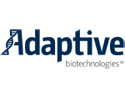

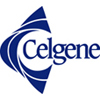
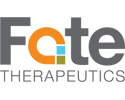
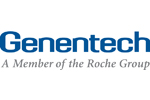
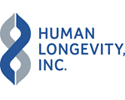

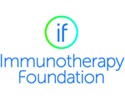

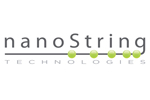
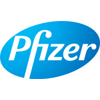
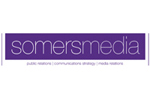
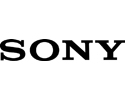
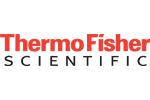
|
|
































